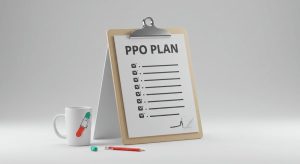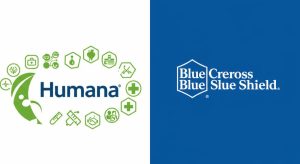Many seniors face the burden of paying for protective briefs, pads, or liners to manage bladder leaks. Free incontinence supplies for seniors can relieve that financial strain, but determining where to find them isn’t always easy. Below, you’ll learn about resources that help reduce expenses, real user experiences, and possible pitfalls to watch for.
“For older adults on a tight budget, every dollar counts,” says Henry Beltran, owner of Medicare Advisors. “Fortunately, some programs exist to offer no-cost or low-cost incontinence supplies, if you know where to look.”
Introduction
Bladder control issues affect millions of seniors who want to maintain comfort and dignity. While incontinence products greatly assist, the monthly outlay can overwhelm those living on Social Security or limited pensions. Locating free options—whether through governmental aid, local charities, or manufacturer coupons—eases the stress of balancing daily living costs with essential health items.
This article highlights organizations and state-based programs known to offer supplies at reduced or zero cost. You’ll also see user insights and straightforward advice to help you secure these resources quickly. If you’ve been struggling to cover monthly incontinence supplies, read on for potential solutions.
People Are Always Asking
- “Do Medicare or Medicare Advantage plans pay for disposable briefs?”
- Original Medicare typically does not cover such items, but some Advantage plans offer an over-the-counter benefit that may help.
- “How can I verify local charities that give free supplies?”
- Start with 211.org or contact local senior centers; they often know of regional nonprofit organizations.
- “Is a doctor’s note required?”
- Usually, no. However, some state-run programs could ask for documentation of medical necessity.
- “Will Medicaid help if Medicare doesn’t?”
- Medicaid may cover supplies for those who qualify. Guidelines vary by state.
- “Are there specific brand restrictions?”
- Some nonprofits provide whichever brand they receive via donation, so you might have fewer choices.
These questions reveal common worries that seniors face when searching for free solutions.
Find Medicare Plans in 3 Easy Steps
We can help get up to $0 monthly premium Medicare plans
How to Find Free Incontinence Supplies
- State Medicaid Programs
- Many Medicaid plans pay for incontinence items if you meet specific income/resource requirements.
- Coverage amounts differ widely, so confirm with your state Medicaid office.
- Local Charities and Community Health Centers
- Some nonprofits collect and distribute donated supplies free of charge.
- Senior centers or social workers can often point you in the right direction.
- Manufacturer Coupons and Samples
- Many companies offer free trial packs. Check official websites or call hotlines to request sample kits.
- You can also sign up for periodic coupons that reduce monthly expenses.
- Veterans Affairs (VA)
- Eligible veterans with service-related health issues can sometimes secure incontinence aids through the VA system.
- Contact your local VA office to see if this applies to you.
- Incontinence Support Groups
- Members often swap or share surplus items or pass along leads on free distribution events.
Henry Beltran advises, “Take advantage of community networks. You never know when a local group or church might sponsor free supply drives.”
Potential Drawbacks
- Limited Choices: Free programs might only offer certain brands or sizes.
- Quantity Restrictions: You could face strict monthly limits that may not align with your usage.
- Documentation Issues: Some programs ask for verification of income or medical status, complicating the process.
- Geographic Gaps: Rural or smaller towns may have fewer nonprofits or distribution centers, causing travel burdens.
- Inconsistent Availability: Supplies often rely on donations, so stock may fluctuate unpredictably.
Despite these challenges, persistence and thorough research usually help seniors secure essential items at zero or minimal cost.
Real User Reviews
Mary, Age 72
“I was shocked by how fast costs piled up for briefs. A friend told me about a local nonprofit that hands out donated supplies every Friday. I’ve gone monthly ever since—major relief!”
Leon, Age 75
“After applying to Medicaid, they started covering most of my incontinence items. The brand is okay, but at least I’m not spending out of pocket each week.”
Clara, Age 70
“Manufacturer coupons helped me test different styles. Eventually, I found a comfortable brand, and the samples bridged me through tough financial months.”
Find Medicare Plans in 3 Easy Steps
We can help get up to $0 monthly premium Medicare plans
Frequently Asked Questions
- Are used or opened packages acceptable if donated?
- Many organizations will only distribute sealed, unused items for hygiene reasons.
- Do these charities deliver, or must I pick up supplies?
- Some offer pick-up only, while a few might deliver. Always check rules on distribution days or shipping policies.
- What if I can’t locate resources in my immediate area?
- Try expanding your search to neighboring cities or counties, or explore online forums where individuals donate surplus supplies.
- Does free mean completely no cost?
- Typically, yes. However, some nonprofits request small donations or ask recipients to cover minimal shipping fees.
- Can I combine free supplies with partial insurance coverage?
- Absolutely. If your plan covers some portion, you can stretch your free supplies further.
- Absolutely. If your plan covers some portion, you can stretch your free supplies further.
Final Thoughts
Free incontinence supplies for seniors can significantly reduce the financial strain that arises from daily bladder control needs. Although Original Medicare usually doesn’t help with disposable briefs or pads, exploring state programs, nonprofits, and manufacturer coupons frequently leads to zero-cost or discounted supplies.
Nonetheless, watch for limitations: smaller brands, monthly quantity caps, or required documentation. A little legwork in investigating local resources, connecting with community groups, or applying for state aid often yields satisfying results.
“Don’t hesitate to ask for help,” says Henry Beltran. “Incontinence supplies aren’t luxuries—they’re key to maintaining comfort and independence.”
By taking advantage of free or subsidized avenues, seniors and their caregivers can direct funds to other essentials and live with renewed confidence. With the right strategy, obtaining incontinence products doesn’t have to break the bank or compromise quality of life.





